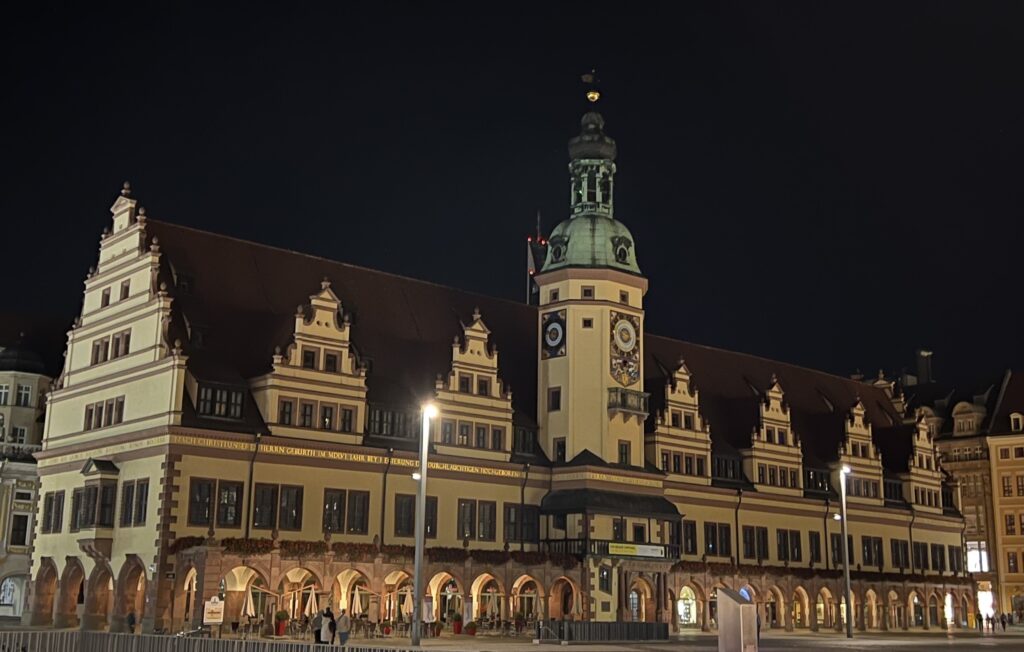Among the most lucrative obligations of Bach’s job in Leipzig was to write a yearly cantata for the inauguration of the City Council, a ceremony performed in Nikolaikirche in late August every year. Several of these cantatas have survived. Cantata 120 probably dates from 1742 and it represented another opportunity for Bach to reuse that mysterious, lost cantata from his Köthen years which also fed BWV 120a.
The librettos for the council inauguration cantatas all follow a similar pattern, with some movements offering praise and thanks for God’s protection of the city, and others requesting future blessings. The libretto for BWV 120 is probably by Picander, although this hasn’t been confirmed.
The text for movement 1 comes literally from the Bible – specifically the first verse of Psalm 65, announcing praise to God in Zion (clearly a proxy for Leipzig). Most likely influenced by the text, Bach does something highly unusual here and opens the cantata with a solo aria, creating a heraldic effect for the big-scale choral movement that follows. The movement is closely related to BWV 120a’s number 6, with the same orchestration of 2 oboes d’amore, strings and continuo, but with solo alto instead of the vocal duet. Also, the singing line is significantly altered to suit the text, with striking word-painting on the words “lobet” (praise) and “Stille” (stillness).
The next movement is correlated to the opening of 120a – same instrumentation and structure, with minor alterations to the vocal lines and a much tighter word painting on “Jauchzet” (exult) and “steiget” (climb). As mentioned before, with further transformations this chorus became the “Et expecto” of the Credo in the B Minor Mass.
The bass recitative that follows talks in the second person to Leipzig (“city of lindens”), urging it to “sing songs of thanks and humility” for God’s protection and care. This leads to a soprano aria, described by Dürr as “an exceptionally lovely jewel among Bach’s arias”. Its text reflects on the role of government in the prosperity and good fortunes of the city. The solo voice is accompanied by a full string orchestra and a concertante violin, closely related to the Cantabile of the violin and harpsichord sonata, BWV 1019a. This movement serves as the source to reconstruct No. 3 in 120a.
Next, a tenor recitative, accompanied by strings, asks for God’s blessing for the incoming council. It leads to the closing chorale which is a setting of the 4th verse of Martin Luther’s “German Te-Deum”.
